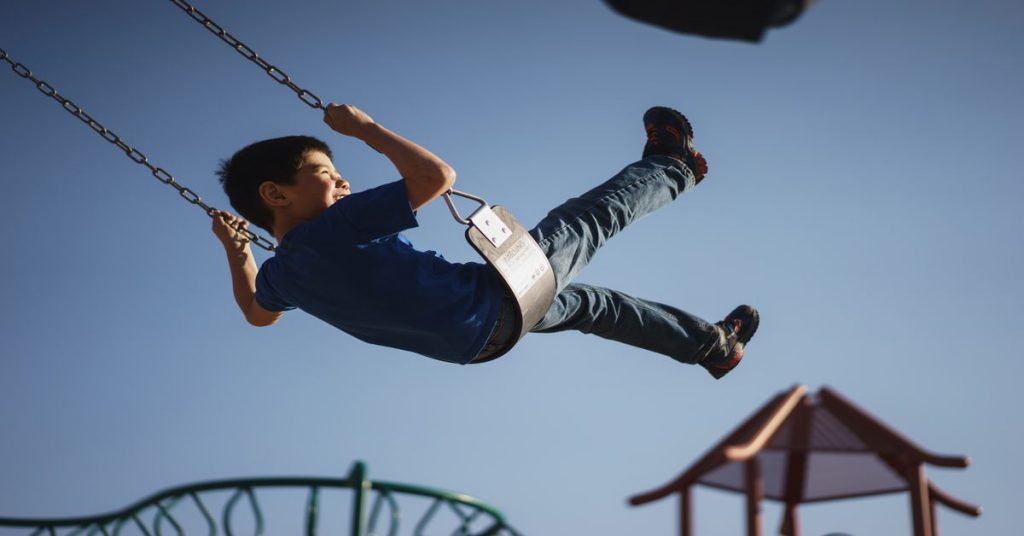Parental pressure on students can take many forms and can have a significant impact on their mental and emotional well-being. Parents may put pressure on their children to excel academically, athletically, or socially, and may also place demands on them to conform to certain beliefs or values.
While some level of parental guidance and expectations can be beneficial for a child’s development, excessive parental pressure on students can lead to feelings of inadequacy, low self-esteem, and even mental health issues such as anxiety and depression. It is important for parents to be aware of the impact that their actions and words may have on their child, and to strive for a balance between setting high expectations and fostering a sense of autonomy and self-worth in their child.
Parental Pressure On Students – Where Does It Come From?
Parental pressure on students can come from a variety of sources. Some parents may have high expectations for their children based on their own personal or professional experiences, or may want their children to achieve certain goals that they were not able to attain themselves. Others may feel pressure from societal or cultural expectations, or may want to ensure their child’s future success by pushing them to excel academically or in extracurricular activities.
Parental pressure for children to excel may be related to various factors, including cultural expectations, parental aspirations, societal norms, the desire for the child’s success, and the belief that pushing children to achieve will lead to future opportunities and success. However, excessive pressure can have negative consequences and should be balanced with supporting the child’s individual interests, abilities, and well-being.
Additionally, some parents may put pressure on their children as a way to cope with their own stress and anxiety. Keep in mind that parental pressure on students can be both intentional and unintentional, as some parents may not be aware of the impact their actions and words have on their child. Ultimately, it is important for parents to understand the source of their own pressure and strive to find a balance between setting expectations and fostering a sense of autonomy and self-worth in their child. Let’s check the effects of parental pressure on students.
Effects Of Parental Pressure On A Child To Succeed
The effects of family pressure on students can vary depending on the child’s age, temperament, and the nature of the pressure. However, some common effects that have been observed include:
- Academic and athletic underperformance: Excessive pressure to excel academically or athletically can lead to a child feeling overwhelmed, which can lead to poor performance.
- Low self-esteem and self-worth: Constant criticism or comparisons to others can cause a child to feel inadequate and to doubt their abilities.
- Anxiety and depression: Children who feel pressure from family members may experience feelings of stress, fear, and sadness, which can lead to anxiety and depression.
- Loss of interest: Children who are pressured to participate in activities they do not enjoy may lose interest in those activities, leading to a lack of motivation and a lack of participation.
- Difficulty to form relationships: Children who feel pressure to conform to certain beliefs or values may have a difficult time forming relationships with others who do not share those beliefs or values.
- Difficulty to make decisions: Children who are overly controlled by parents may have difficulty making decisions on their own as they may not be given the opportunity to develop their decision-making skills.
Note that not all parental pressure on students is negative, some pressure can be beneficial for a child’s development and setting boundaries for their own well-being.
How To Be Good Parents – 7 Ways To Improvise Your Parenting
There are several ways in which parents can strive to be good parents, and improve their parenting skills, based on Indian knowledge systems. Some tips to consider include:
- Showing love and affection: Children need to feel loved and valued in order to thrive. Showing love and affection through words, actions, and physical touch can help children develop a sense of security and self-worth.
- Communicating effectively: Effective communication is key to building strong and healthy relationships with children. This includes listening actively to children and responding to their needs, as well as expressing oneself clearly and respectfully.
- Setting clear boundaries and consequences: Children need clear rules and guidelines to help them understand what is expected of them. Parents should also be consistent in enforcing consequences for rule-breaking.
- Encouraging independence and self-reliance: Provide children with the opportunity to make decisions and take responsibility for their actions. This can help children develop important life skills and a sense of autonomy.
- Teaching moral and ethical values: Moral and ethical values such as honesty, respect, compassion, and responsibility are very important in life. Parents can help instill these values by modelling them and discussing them with children.
- Spending quality time: Quality time with children can help build strong relationships and create positive memories that will last a lifetime.
- Being a role model: Children learn by example, so parents should be mindful of their own behaviour and how it may be impacting their child’s development.
It is important to note that parenting is a continuous process and it is not uncommon to make mistakes. Being a good parent is not about being perfect, but about being open to learning and growing alongside your child.

In conclusion, being a good parent is a challenging but rewarding task that requires patience, understanding and a willingness to learn and grow. The tips shared here are intended to provide guidance for parents who wish to improve their parenting skills.
By showing love and affection, communicating effectively, setting clear boundaries and consequences, encouraging independence and self-reliance, teaching moral and ethical values, spending quality time, and being a role model, parents can help their children thrive and develop into well-rounded individuals. However, remember that parenting is a continuous process and it is not uncommon to make mistakes. Being a good parent is not about being perfect, but about being open to learning and growing alongside your child.
Frequently Asked Questions
Question 1. How to deal with parental pressure?
If you’re struggling with parental pressure, it’s important to communicate your feelings and boundaries clearly. Try to understand your parents’ perspective, but also advocate for your own needs and desires. Seek support from friends, family members, or a therapist. Practice self-care and prioritize your own well-being. Remember that it’s okay to make your own choices and follow your own path in life.
Question 2. Why is parental pressure bad?
Parental pressure can be harmful because it can lead to anxiety, depression, and low self-esteem. It can also damage the parent-child relationship and create long-term emotional and psychological issues. When parents push their children too hard to meet their expectations, it can lead to a lack of autonomy and a sense of being controlled. Children may also experience guilt or shame if they are unable to meet their parents’ expectations. Ultimately, it’s important for parents to support and guide their children, but also respect their autonomy and individuality.
Question 3. What are the benefits of communicating with your parents?
Communicating with your parents can have many benefits. It can help build trust, strengthen the parent-child relationship, and create a sense of mutual respect. Clear communication can also help resolve conflicts, prevent misunderstandings, and promote healthy boundaries. When children feel heard and understood by their parents, it can improve their self-esteem and overall well-being.
Communication can also help parents understand their children’s needs, fears, and desires, which can help them provide better support and guidance. Overall, open and honest communication is key to a healthy and positive relationship between parents and children.
Question 4. How to deal with parental pressure for marriage?
If you’re facing parental pressure to get married, it’s important to communicate your feelings and boundaries clearly. Try to understand your parents’ perspective, but also advocate for your own needs and desires. Discuss your goals, dreams, and priorities with your parents and explore alternative paths to marriage, such as furthering your education or pursuing a career.
Seek support from friends, family members, or a therapist. Practice self-care and prioritize your own well-being. Remember that it’s okay to make your own choices and follow your own path in life, even if it differs from your parents’ expectations.






